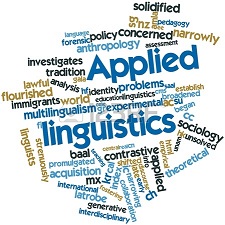Doctor of Philosophy (Management Sciences)
Admission
Process
Program Overview:
The PhD program provides high quality management education to business scholars i.e. to discover and impart
culturally and globally relevant knowledge in management sciences. The program is designed to discover management
scholarship which is intellectually rigorous, morally intensive, socially integrative, culturally relevant and
globally acknowledged. PhD scholars will be encouraged to carry out original work through research which connects
strongly with resolving local, national and global challenges of significance. PhD in Management is offered at
Islamabad at Lahore Campus.
The Islamabad Campus is currently offering PhD in the following areas of specialization:
Management
Marketing
Finance
Human Resource Management
Technology Management
Eligibility:
A Master’s degree in a relevant subject, earned from a recognized university after a minimum of 18 years of
education with CGPA of at least 3.0/4.0 or equiva lent.
A minimum of 60% marks and at least 50 percentile rank in the relevant NTS subject test. The NTS GAT-Subject
Score should be valid at the time of admission.
Selection Criteria:
Admission is based on a candidate’s performance in the following:
Performance in International GMAT or an equivalent test as per HEC rule
Interview and assessment by the Doctoral Admissions Committee (FSM DAC)
Submission of Research Proposal (for the purpose of evaluation)
Research Paper: (w.e.f 1st March 2025)
Publication of one research article in an HEC approved “W” category journal OR Two research articles in an HEC approved “X” category journal is a requirement for the award of PhD degree.
Scheme of Study:
The PhD program requires candidates to take six graduate level courses (18 Cr. hrs.). There are four core courses,
listed below. The remaining two can be taken from graduate level courses in the Faculty of Management Sciences or
from the specialization electives for PhDs with the recommendation of the supervisor. On completion of the
coursework, students are required to pass a qualifying comprehensive examination, defend their research proposal and
then carry out research in the chosen area. The candidates are also required to publish research papers in journals
of international repute, as per prevalent requirements.
List of Core Courses:
Title
Cr. hrs.
Title
Cr. hrs.
Philosophy of Management Science
3
Quantitative Methods in Management Research
3
Research and Theory in Management
3
Qualitative Methods in Management Research
3
Note: Deficiency courses may be recommended by FSM-DAC for selected
candidates on case to case basis.
Outlines of Core Courses: (These are broad guidelines only. Instructors may vary emphases on
individual topics and themes and bring additional topics that they see fit)
Philosophy of Management Science (MG601): It is said that management is governing and leading without
recourse to political power or religious authority. This advanced level course will help students to realize and
appreciate the nature of management field to a greater maturity and sophistication by interchangeably addressing the
philosophical aspects of management and managerial aspects of philosophy. Accordingly, the process that will be used
will start with, and put major focus on, developing an understanding of the evolution of management and
organizational philosophy in a chronological order by classifying the work of central theorists and authors from a
perspective that clarifies their relevance with the mainstream theory building in the field of management. The idea
is to dissect the body of knowledge in management science – i.e., perspectives such as classical and neo-classical
organization theory, OB perspective, structural organization theory, systems theory and organizational economics,
power and politics, organizational culture and environment, and postmodernism, etc. – and interpret it as a
continuous effort to analyzing, predicting, controlling and governing human action.
Research and Theory in Management (MG604): A theory is said to be an ordered set of assertions about a
generic set of behavior that hold true for a wide range of specific instances. But where do new theories come from?
How theories are built starting from a very basic research question? And can theories be good or bad since once
popularized they not only explain behavior but influence behavior in a certain direction. Finally, what constitutes
a ‘weak’ or a ‘strong’ theory? The aim of this course is to develop a critical appreciation ofthe role of research
in theory development in Management as well as introducing doctoral students to the art and science of theory
construction and model building. Topics include examining the nature of being (ontology) and knowing (epistemology),
exploring the basic structure of argument and evidence, developing a pertinent and interesting research question,
defining constructs, imagining relationships and processes that link constructs, and linking and combining
constructs in an innovative way to develop new theories or build further upon existing behavioral models. This
course demands intensive preparation on part of students in terms of readings prior to the lectures so that lively
discussions can be generated in the classroom, research exercises tailored to each student’s research topic can be
accomplished, and a term paper be completed.
Qualitative Methods (MG 589): This course will introduce a range of qualitative research methods and the
means of assessing the key assumptions underlying the selection and use these methods. Building on the fundamental
questions about the nature of knowledge and whether "true" knowledge or reality can exist, the discussions will
provide a deep understanding of the advantages and challenges in carrying out qualitative research. Examples of
topics covered include interviews, focus groups, ethnography, documentary and textual analysis, discourse analysis,
language and conversation analysis, case-studies, participatory action research and grounded theory. Categorization
and coding of data will be covered in detail. The course will include labs to introduce software for qualitative
data analysis. The course will also cover the growing significance of qualitative research techniques across the
modern and postmodern era. Further, scholars will be encouraged to analyze and understand various approaches to
writing qualitative papers.
Quantitative Methods (MG 548): This course will introduce a range of advance quantitative research technique
and develop an understanding of the potential and limitations of statistical analysis. Building on the positivist
paradigm, the course will briefly revise concepts of probability, sampling, hypothesis development, developing
constructs, associations and basic analyses for differences between groups. Examples of main topics covered include
various types of regression, discriminant analysis, MANOVA, analysis of covariance, principal component and factor
analysis, cluster analysis, structural equation modelling, survival/failure analysis and time series analysis. The
course will include labs to introduce software for quantitative data analysis. Scholars will be encouraged to
analyze and understand articles which have used a variety of quantitative methods, developing the capacity to choose
advance techniques suitable for their research questions.
More Details













































